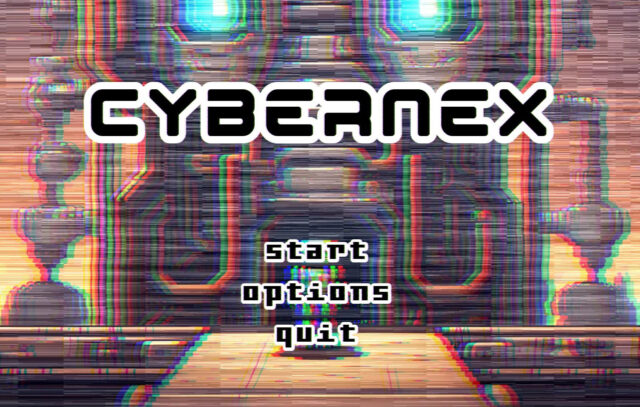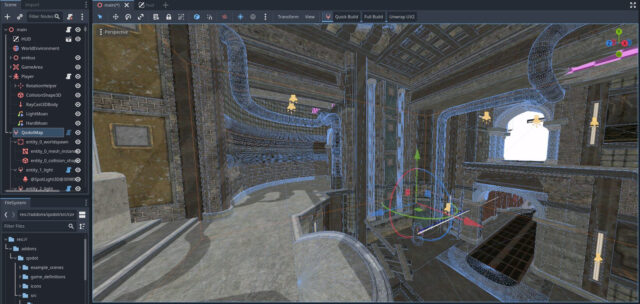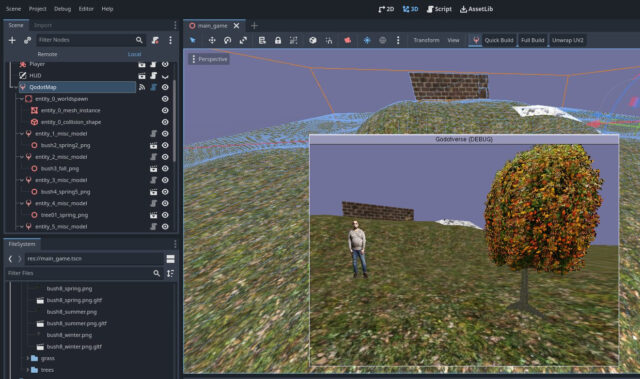Welcome! You may know me as Mathias. I live in the Rhein-Ruhr area in Germany.
I was a sysadmin until recently. Now I am pursuing my hobbies and work on private projects.
My blog randomly covers some of my interest:
|
|
free software that I am or have been working on
Wikipedia-live-telnet allows people to browse Wikipedia via telnet (telnet.wiki.gd). It was written from scratch with Grok-3, ChatGPT-o1 and o3-mini-high in just two days, and also features an AI assistant that pulls general information from search results or the Wikipedia article context. It should work on low baud vintage CP/M machines and onwards.


Cybernex is a top-down 2D game, with extreme main focus on new game mechanics and complexity. It teaches basic electronics, by having real (simplified) circuits to repair in the environment, e.g. to open doors or unlock terminals. Enemies can only be defeated effectively, when first performing mathematical challenges on a timer, such as algebraic transformations or guesswork analysis. I want to incorporate as many more innovative mechanics as I have time to do so, and the list of possibilities seems almost endless. It is meant to be the rebellious polar opposite to modern game industry trends, which sacrifice all novelty and educational value, in order to target the lowest common denominator for maximum popularity and profit.

Better Godot support for the Quake .map format with PatchDef2 (bezier curves) and BrushDef.

Godotverse is a FPS game template for Godot, with a workflow mostly based on end-user tools such as Netradiant and Blender. My idea is that people will be able to use this as a 3D interactive front-end for a website, where you can meet other people viewing the website inside the metaverse-ish game and talk to them. All that is needed is to basically download the tools and to make a custom map in the mapping tool (e.g. a forest hut, where the blog posts are scattered as scrolls on a path, or a building with a library and projectors on walls). You can then compile this and put it on your website for people to view in the browser. At the same time, it serves as example code for other games to implement stair-walking, network code and so forth.
Ideamarket was a website I wrote, where you could either start new projects or subscribe to existing projects, such as software to develop or charity work in your city. People would support ideas (or projects) with their own manpower, instead of money. This was mainly inspired by the unfortunate circumstance, that free software projects do only attract developers, after the fact of being already substantially developed and useful. In most cases by just a single person sacrificing extreme amounts of time to make it happen. Which is totally backwards if you think about it. But you could also abstract this concept to any idea whatsoever, such as organizing protests, planting trees in the city or helping the homeless. I ultimately gave up on it, because the internet nowadays is over-over-saturated with content, and you just can't put something new like this into people's mind to search for. Sadly such innovations are now doomed to be drowned, fail and forgotten without very expensive and extensive marketing. I also got very frustrated with the lifecycle and other drawbacks of modern web frameworks, and I just couldn't see a future for this from just my own doing, without heavily commercializing it. Maybe as a federated free culture web 3.0 thing, it could still take off. Though that would be much more challenging to do and somewhat overkill for the potential amount of users. If you are looking for a similar website, check out Crowdsourcer.io.
There are also more secret projects I will not reveal here.
Quite a few other projects exist on my Github page.
This page or post was last modified on 2025-04-12 .